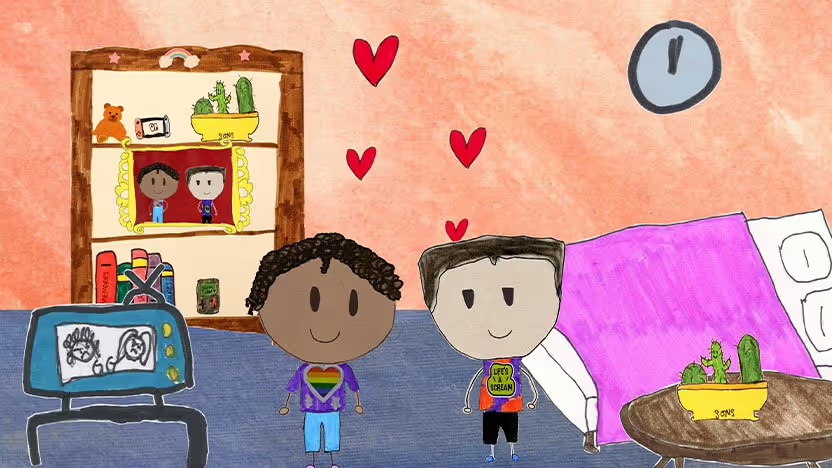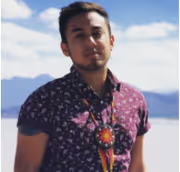To The Future, with Love Discussion Questions & Taking Action
Discussion Questions & Taking Action

Discussion Questions
- Take a moment to think about the film. What moments stood out for you? Why?
- Why do you think the filmmakers chose the title To the Future, with Love?
- What aspects of Hunter’s story resonate for you personally?
- In the film, Hunter tells his story in drawings. How did this illustrated approach (rather than live action) affet your engagement in the film? How did this creative representation impact your openness to connecting with Hunter and his experiences?
- What was different about this film than others you have seen that feature trans or nonbinary people?
- Where did your personal beliefs and ideas about gender, sexual orientation, and biological sex come from?
- Hunter is a nonbinary trans man who is in a romantic relationship with another trans man. What does this invite you to think about regarding gender and sexual orientation?
- Did anything about Hunter and Damienne’s relationship surprise you? In what ways might online or long-distance relationships for LGBTQI+ youth open possibilities that might otherwise be difficult?
- Hunter shares that he sometimes doesn't allow himself to have “nice things” because it might jeopardize his family’s financial security.
- Are there times when you’ve experienced tension between your personal desires and your responsibilities to others? How do you navigate those moments?
- How might our cultural or class backgrounds influence how we think about these tensions?
- In the film, Hunter talks about how his family members love him, but don’t necessarily understand or acknowledge his gender identity. What are your beliefs about family support? How can we show people in our lives that we love them, even if we don’t fully understand them?
- Hunter is the protagonist, illustrator, and writer of To the Future, with Love. How might the film have been different if someone else tried to tell Hunter’s story from the outside? What might be lost?
Taking Action
Following your discussion of the film, you may choose to invite people to go deeper. Below are two ideas for ways to take action:
Express Yourself
Take a cue from Hunter. Invite participants to use drawing to explore important aspects of their own lives and communities, placing special emphasis on the ways they experience their own gender. Provide art supplies (paper, markers, colored pencils, scissors, glue) and, if possible, leave time at the end for anyone who wants to share with others what they have created.
Time: 45-60 mins
Tools: art supplies including paper, markers, colored pencils (optional: scissors, glue sticks)
Write Your Legislator
Whether your state is considering anti-trans legislation or you want to support more inclusive legislation on a city, state, or national level, writing to your legislators can make a difference. Invite participants to write postcards in support of (or in opposition to) pending legislation impacting LGBTQI+ people. It can be helpful to provide a template message with room for a personal note or testimonial. The National LGBTQ Task Force is a great resource for current actions supporting LGBTQI+ people, along with sample language for each campaign. The bipartisan Freedom for All Americans project provides a legislative tracker and resources to help win LGBTQI-inclusive nondiscrimination protections across the country.
Time: 30-60 minutes
Tools: Pens, postcards, potage, template language
